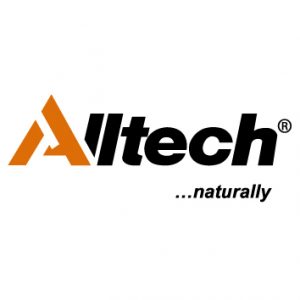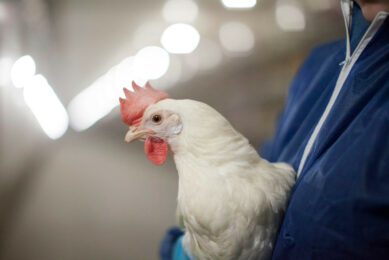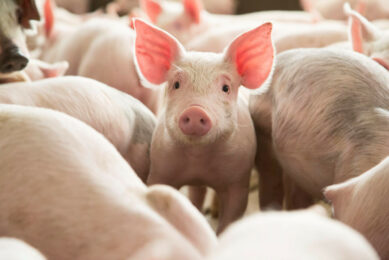How do raw materials affect animal production and can enzymes help?
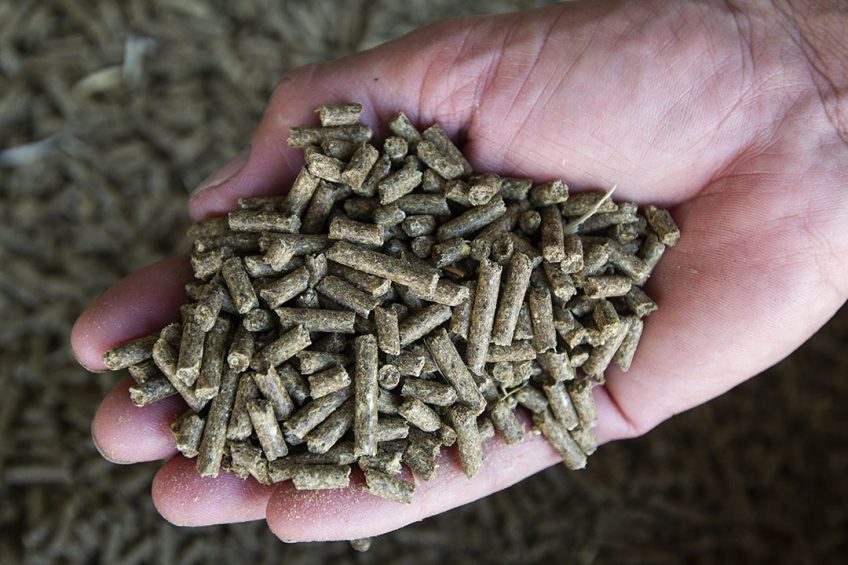
Exogenous enzymes, which are used to improve the nutritional value of feed ingredients, are an effective solution for optimising feed efficiency.
One of the biggest challenges that producers of farm animals face is the rising cost of feed, which can account for up to 70% of total production expenses. Furthermore, around 25% of the available nutrients in feed cannot be fully utilised by the animal due to the anti-nutritional factors of feed, aspects that negatively affect nutrition. What’s more, the variability and availability of raw materials also play an important role. The industry is currently experiencing fluctuating grain prices. How much do these changes affect profitability?
An increase of US$10 per tonne of soybean meal could represent a $0.44 increase in the production cost of a dozen eggs, or a $0.25 increase per pound of live weight in the cost of broiler production, which has a significant impact on profitability. Moreover, the anti-nutritional factors and variability of raw materials can also affect digestibility and animal performance and can have an impact on the environmental footprint of the operation, as more nutrients could be excreted back into the environment if the nutrient utilisation of the diet is not optimised. Now, more than ever, one of the greatest challenges for the animal nutrition industry is to establish a cost-effective and efficient production of meat and eggs based on nutritional and economic factors, which often vary and can be unique to each production system.
Optimising nutrient utilisation
The nutritional values of the raw materials used in animal feed are extremely variable. For example, plant-based ingredients include significant amounts of non-starch polysaccharides (NSPs), which contain anti-nutritional properties that increase the viscosity of the diet, limiting energy intake and digestibility. Indigestible fractions represent a loss for the producer and may vary based on their origin.
The focus of the animal nutrition industry has always been on optimising health and performance through nutrient utilisation. Advances in this area over the past several decades have revealed various applications that can help release trapped nutrients in order to meet the animals’ nutritional requirements. One of these solutions and perhaps the most important and proven of them all, is the use of exogenous enzymes.
How can enzymes help animal nutrition?
Enzymes play a key role in the animal’s digestive process. Although digestive enzymes are produced within the animal itself, producers have used exogenous feed enzymes to optimise nutrient utilisation and improve performance in terms of animal feed.
Exogenous enzymes are commonly added to animal diets to improve the nutritive value of feed ingredients (especially phosphorus, calcium, amino acids and proteins):
- to optimise animal health
- welfare and performance
- to increase feed efficiency, and
- to reduce the excretion of nutrients into the environment, which ultimately results in a sustainable reduction in feed costs.
Feed enzymes also allow for the use of a broader range of feedstuffs, which can help increase flexibility in the formulation of the diet by using non-conventional sources or alternative raw materials. Non-conventional dietary sources can be used to reduce feed costs, but they might not be as readily digestible, since the animal may lack the necessary endogenous digestive enzymes and, as such, will derive less nutrition from the feed.
Using exogenous enzymes helps make the feed more digestible and, as a result, increases the nutritional value of these non-conventional feed sources for animal nutrition. Over the past 20 years, feed enzyme utilisation has evolved. As feed diets have become more complex to combat the rising costs of traditional feed components, enzymes have been added with the expectation that they will maximise the nutrient availability of feed and thus result in improved animal performance. However, the characteristics of enzymes can vary widely depending on the microbial strain from which they are sourced and how they are produced.
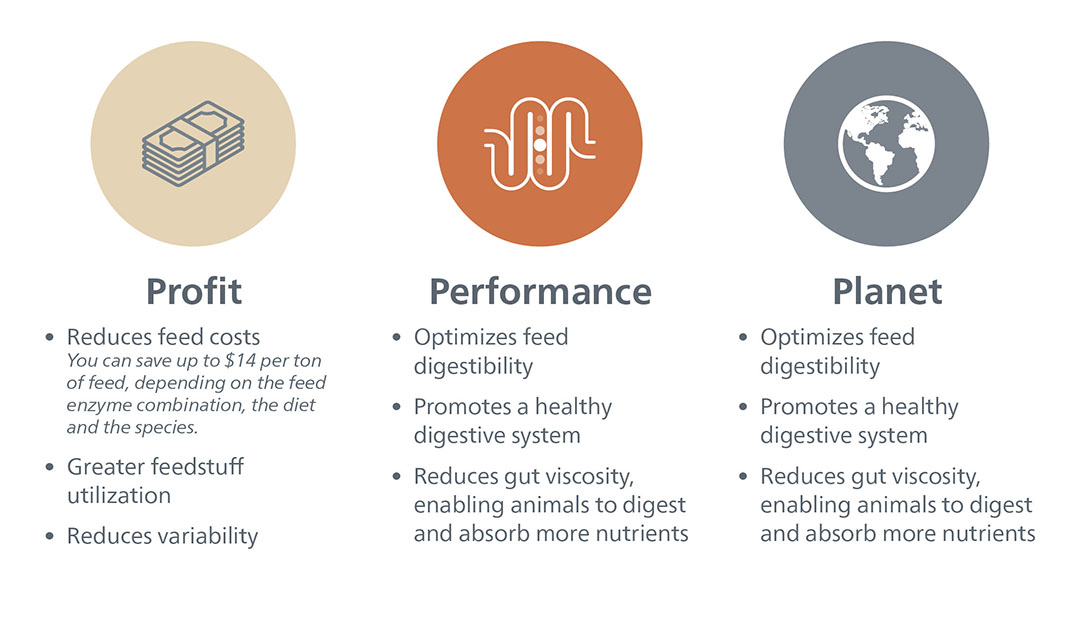
A unique fermentation system
Most feed enzyme production originates from using both bacterial and fungal microorganisms produced through one of 2 processes: submerged fermentation (SmF) or solid-state fermentation (SSF).
Alltech has invested in SSF technology, which utilises a non-GMO organism − typically, a fungus − that grows on a high-fibre feedstuff to produce a host of natural enzymes. The goal of using SSF is to produce a multi-enzyme complex that will work on the many fibre substrates in the diet, not just 1 or 2 specific substrates, to reduce their anti-nutritional effects. The use of SSF for commercial enzyme production has been extensively researched over the past 20 years. SSF systems can be tailored to address specific needs based on the microbial selection and the multiple substrates in the diets. For example, Aspergillus niger produces a multi-enzyme product that contains phytase, protease, amylase, xylanase, cellulase and β-glucanase. Alltech has invested in numerous PhD programmes established to study enzyme technology via SSF. These programmes have focused on how to improve production efficiencies in fermentation systems. All of our research examines the continuation of non-GMO organisms to bring more sustainable technologies to the industry. The Alltech Enzyme Management programme offers unique feed enzyme technologies backed by science that work in synergy with the animal’s digestive tract to optimise the potential of the feed. Allzyme SSF helps maximise feed utilisation and efficiency by targeting multi-substrates in the diet. In addition, Allzyme Vegpro offers an enzyme complex specifically designed for vegetal protein sources, helping animals optimise the digestibility and utilisation of nutrients, especially proteins.
Over the past 2 years, we have focused our research on improving our enzyme technology even more. Poultry trials have been conducted recently, and more are in progress throughout the world. We believe that these new developments will offer increased nutrient utilisation by improving feed digestibility while promoting greater cost savings.
In the near future, enzymes will be the key
When looking at feed options, the use of enzymes has emerged as an important contribution to establishing a solution for the increased sustainability of animal production. Our feed enzyme technologies have implications beyond cost savings: our range of feed enzymes also helps improve gut health and animal welfare, while reducing environmental impact, allowing producers to potentially triple their bottom line.


